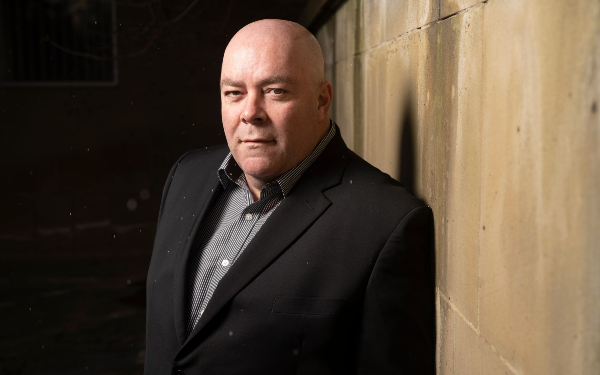
Action must be taken to reduce the increasing demands on council social workers from age assessments of unaccompanied asylum seekers, a leading director has said.
Association of Directors of Children’s Services (ADCS) president John Pearce said the association was working with the Home Office and Department for Education to refine the asylum age check process to reduce the amount of social work capacity it required.
There were 3,140 age-disputed cases resolved from April 2022 to March 2023, up from 2,777 in 2021-22 and just 913 in 2021-22, according to Home Office figures.
Age assessments are generally the responsibility of the local authority in which the claimant first presents (known as a “spontaneous arrival”), or where they have been moved to under the government’s National Transfer Scheme (NTS), which is designed to relieve pressure on ports of entry, such as Kent.
However, since 2021, the Home Office has accommodated some unaccompanied young people in hotels, due to a lack of council placements.
Pearce claimed the department was treating age-disputed claimants it was accommodating as spontaneous arrivals in the council where the hotel was based, which he said was “clearly not the case” and “simply not acceptable”, in his speech to this month’s ADCS conference.
‘Huge pressure’ from age assessments
In a subsequent interview with Community Care, Pearce said this was placing “huge pressure” on the local authorities concerned and that there was a need to revisit the process of age assessment more generally.
“There’s a huge social work capacity required around those age assessments,” he said. “As we’re seeing more and more young people who are age disputed, it’s really important that we have an effective process that doesn’t absorb huge amounts of social work capacity.”
Earlier this year, the Home Office launched the National Age Assessment Board, which is designed to take on a significant proportion of assessments from councils.
Home Office struggling to recruit social workers
However, it has struggled to recruit social workers to the board, with just 40% of the required complement in post as of April this year, a year after recruitment started. As a result, the NAAB is only operating in two regions, London and the West Midlands.
Pearce told Community Care that, even if the NAAB were operating at full capacity, “that would be nowhere near enough to meet demand”.
He said the ADCS was working with the Home Office and DfE to “develop a much more effective process and one that doesn’t require significant amounts of social work capacity”.
In his conference speech, he highlighted that the legal case that defines the current approach to age assessments, B v London Borough of Merton, was 20 years old.
Age assessment principles
Current government age assessment guidance, based on the Merton judgment and subsequent case law, sets out a number of principles including that:
- The age assessment should, if practicable, involve two social workers, who should be properly trained and experienced in cases where the age of the young person may be borderline.
- Social workers pay attention to the level of tiredness, trauma, and confusion of the claimant and provide appropriate breaks as necessary – if the young person is ill then the interview should be rearranged.
- Practitioners are aware of the customs and practices and any particular difficulties faced by the claimant in their home society.
- Social workers seek to obtain the general background of the claimant, including their family circumstances and history, educational background, and their activities during the previous few years – ethnic and cultural information may also be important.
“It is not acceptable to fall back on legislation, written in a different age, to shunt the consequences of national policy onto local government.”
Introduction of scientific assessments
The government has legislated to introduce so-called scientific methods of assessing age – such as dental x-rays and bone scans – and specific such tests will come into force once the home secretary has deemed them appropriate, after taking advice from a new Age Estimation Science Advisory Committee.
That committee, which is currently sitting in interim form, said that combining social work assessments, under the Merton framework, with scientific tests would increase the reliability of age checks, in a report earlier this year.
In his conference speech, Pearce said councils needed to “explore the opportunities” scientific methods could offer to support a swifter process while also reducing the increasing demands on our social work workforce, especially if the National Age Assessment Board is unable to fulfil the purpose for which it was established”.




 Bournemouth, Christchurch and Poole
Bournemouth, Christchurch and Poole  Hampshire County Council
Hampshire County Council  Lincolnshire County Council
Lincolnshire County Council  Norfolk County Council
Norfolk County Council  Northamptonshire Children’s Trust
Northamptonshire Children’s Trust  South Gloucestershire Council
South Gloucestershire Council  Wiltshire Council
Wiltshire Council  Wokingham Borough Council
Wokingham Borough Council  Children and young people with SEND are ‘valued and prioritised’ in Wiltshire, find inspectors
Children and young people with SEND are ‘valued and prioritised’ in Wiltshire, find inspectors  How specialist refugee teams benefit young people and social workers
How specialist refugee teams benefit young people and social workers  Podcast: returning to social work after becoming a first-time parent
Podcast: returning to social work after becoming a first-time parent  Podcast: would you work for an inadequate-rated service?
Podcast: would you work for an inadequate-rated service?  Family help: one local authority’s experience of the model
Family help: one local authority’s experience of the model  Workforce Insights – showcasing a selection of the sector’s top recruiters
Workforce Insights – showcasing a selection of the sector’s top recruiters 

 Facebook
Facebook X
X LinkedIn
LinkedIn Instagram
Instagram
Comments are closed.